Cloud ERP Security Concerns: Best Practices for a Secure Future
- ERP Systems
- Security
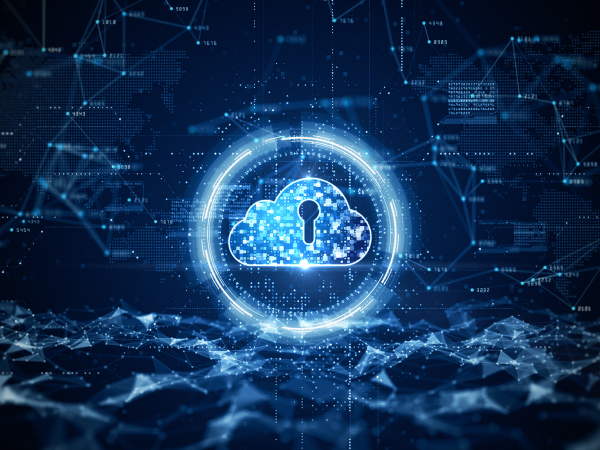
The rise of cloud-based Enterprise Resource Planning (ERP) systems marks a significant shift in how businesses manage and process their data. Although still an emerging market, as much as 95% of organizations are open to using a cloud ERP platform.
This is no surprise, given cloud’s ability to increase efficiency, scalability, and accessibility with lower initial costs.
But this shift also brings up pressing concerns around data security. The safety of sensitive information, particularly in a cloud environment, is paramount for businesses to maintain trust and compliance.
Are cloud-based security measures and protocols robust enough—and reliable enough—to safeguard sensitive data?
Understanding Cloud ERP and its Growing Importance
Cloud ERP systems are a type of ERP software that integrate and manage essential business processes, hosted over the internet on a cloud computing platform. The software is delivered via a subscription-based Software-as-a-Service (SaaS) model.
Unlike traditional ERP systems that require significant on-premises infrastructure, cloud ERP provides accessibility from anywhere, fostering a more integrated and efficient business environment.
On-premise ERP systems are quickly growing in popularity. Up to 65% of companies are using or moving to a cloud ERP system (although this varies by industry). Driving the shift is an overall strategic push for modernization.
Low cost for setup and maintenance compared to on-premise servers and the ability to provide seamless updates and scalability are factors that are hard to resist.
Advantages Over Traditional On-Prem Systems
Cloud-based ERP systems offer several benefits compared to older on-premise ERP systems. These benefits include:
- Predictable operating expenses
- Scalability and flexibility
- Automatic updates and upgrades
- Improved disaster recovery
- Low IT maintenance burden
- Access to newer technology integrations
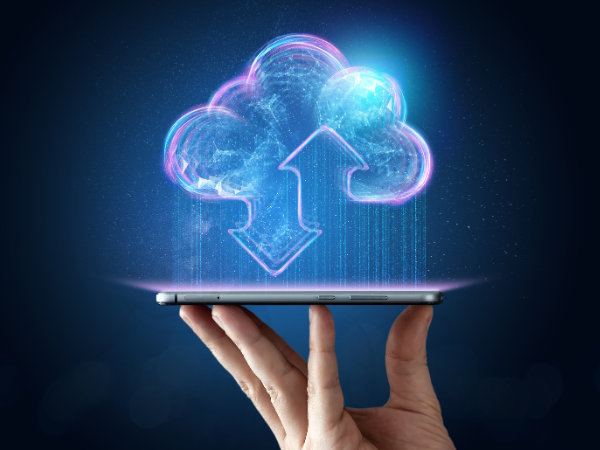
Navigating Migration to Cloud ERP Systems: Guide & Checklist
READ NOW »Industry Adoption
What industries are adopting cloud ERP systems? The short answer is: that depends. While businesses in any industry can take advantage of the latest innovations available in cloud-based ERP systems, those where compliance is especially rigid may have to continue using on-prem ERPs.
For example, certain government contract companies in aerospace and defense stick to on-premise ERP systems for national security reasons.
Key Security Concerns in Cloud-Based Systems
While cloud-based systems offer numerous benefits, they also come with unique security challenges. The nature of cloud computing means data is often stored off-premises and transmitted over the internet, which can expose it to external cyberthreats.
With control over security placed in the hands of a third-party vendor, their lack of due diligence can lead to unauthorized access, data breaches, service outages, or worse.
The top concerns for cloud-based ERPs include:
- Data privacy and confidentiality
- Compliance and regulatory issues (GDPR, HIPAA, etc.)
- Access control and authentication
- Data at rest security
- Data in transit security
- Endpoint security
- Vendor reliability
Failing to protect sensitive business data can result in significant financial loss, including cyber ransoms, loss from theft, fines, and legal and law enforcement action.

How to Address Security Risks of Legacy Inventory Software
READ MORE »Security Measures for Cloud ERP
To counteract the inherent vulnerabilities of cloud-based systems, robust security measures are essential. This is even more important for ERP systems handling sensitive business data. Every measure must be taken to ensure the integrity and confidentiality of this crucial data.
Some of the key security protocols and strategies implemented in cloud ERP systems to safeguard data against unauthorized access and cyber threats include:
Essential Security Measures
Essential security measures include the implementation of multi-layered security protocols, including firewalls, intrusion detection systems, and secure data transmission methods.
Multi-layered security protocols are layered defenses that provide a comprehensive approach to security, covering various aspects of the cloud ERP system.
For secure data transmission, techniques like SSL/TLS encryption are used to protect data during transmission over the internet.
Data Encryption Techniques
Various advanced encryption methods are used to secure data at rest and in transit. Data at rest must be encrypted to protect stored information from unauthorized access or theft. Meanwhile, data in transit must be encrypted to ensure that information remains secure while being transmitted between systems or users.
Mobile data collection solutions like RFgen Mobile Edge™ provide additional hardened security layers for data in both states.
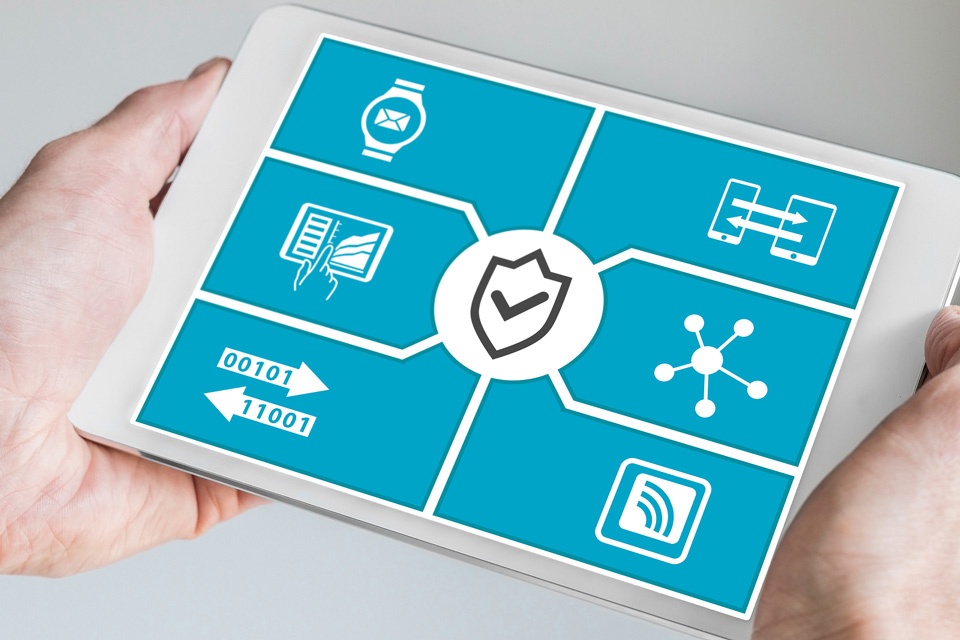
3 Ways Mobile Barcoding Enhances Secure Remote Access
LEARN MORE »Access Control and Authentication
Strict access control measures and authentication protocols help to restrict system access to authorized personnel and roles only.
This involves utilizing strong user authentication methods, such as multi-factor authentication (MFA) to verify user identities.
Another method is role-based access control (RBAC) which limits user access to essential data and functions based on their role. Mobile solutions often make use of RBAC so workers can remain focused on only the fields and forms required to complete their assigned tasks.
Regular Security Audits and Compliance
In addition to leveraging the latest security technologies, there’s no substitute for conducting periodic security audits. Performing regularly scheduled evaluations of security posture helps businesses proactively identify and rectify vulnerabilities before it’s too late.
For companies that must maintain compliance with industry standards and regulations, audits may involve certain types of reporting as well. For instance, aerospace and defense companies will have additional security requirements as dictated by the Department of Defense (DoD).
Other industries must prove compliance with standards like GDPR, HIPAA, ISO 27001, and so on.
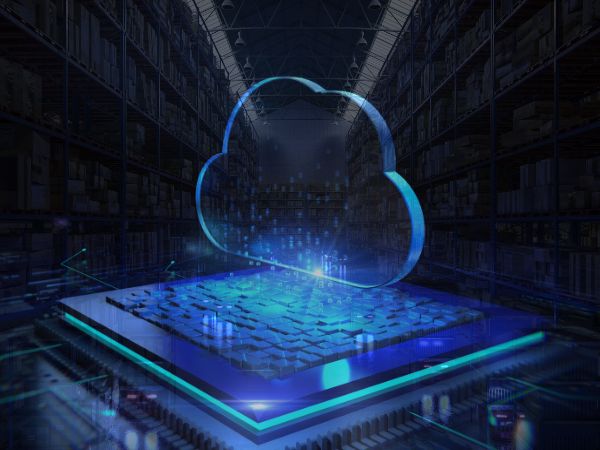
The Impact of Cloud Migration on Data Collection Software
LEARN MORE »Advanced Security Features in Modern Cloud ERP Systems
In addition to the essential security measures, newer, more advanced protocols are currently being developed and implemented. These emerging technologies promise superior protection against evolving cyber threats.
They include:
AI and Machine Learning for Threat Detection
Artificial Intelligence (AI) and machine learning allow for rapid, intelligent pattern analysis to detect anomalies that indicate security breaches. AI algorithms can be designed to identify unusual activities that could signal a cyber threat.
Meanwhile, machine learning models are able to enact predictive security to mitigate potential security incidents before they occur.
Blockchain Technology for Enhanced Security
Blockchain continues to mature as a technology in the enterprise space. Companies are increasingly utilizing blockchain to create tamper-proof records of transactions and data exchanges.
This is due in part to blockchain’s main strength: immutable record-keeping. With blockchain technology, all transactions are recorded and cannot be altered retroactively.
Blockchain’s decentralized security model also enhances security by reducing the risk of centralized data breaches.
Continuous Monitoring and Real-Time Security Updates
Ongoing surveillance continues to be an effective cybersecurity strategy. Real-time monitoring provides instant updates that allow specialists to tackle new threats as they arise.
In addition, organizations should consider enabling automatic security updates for mission-critical software, like ERP systems. This way, the system is always up-to-date with the latest security patches.
Best Practices for Ensuring Data Safety in Cloud ERP Systems

Adopting best practices is a must for keeping cloud ERP systems secure. The most important best practices include:
Training End-Users to Maintain Security
End-user training remains one of the most important weapons in the cybersecurity arsenal. Most intrusions occur due to bad end-user behaviors.
For this reason, be sure to regularly educate users on safe practices and the importance of adhering to security protocols. Notify users about potential security risks as well as safe usage practices. Also encourage users to be vigilant at all times. Provide a clear way for users to report suspicious activities.
Regular Training and Awareness Programs
The importance of training can’t be overstated. In addition to one-time trainings for new employees, a best practice is to conduct ongoing training sessions, too. This way, employees can stay up-to-date on the latest security best practices. Even basic awareness of threat recognition and safe behavior goes a long way.
Keep Security Software Updated
Security software also needs to be kept updated to the latest patches to safeguard ERP data. This proactive approach helps keep newly discovered vulnerabilities and threats at bay. Outdated software offers potential vulnerabilities for exploitation by cyber attacks.
Importance of Choosing a Reliable Cloud ERP Vendor
Selecting a vendor with a strong track record in delivering secure and reliable cloud ERP solutions is a best practice that often gets overlooked. While most ERP providers will offer a high level of security, not all platforms are created equally. A large company is more likely to provide maximum security while a smaller company may struggle to keep up with the constantly evolving world of cybercrime.
It can also be a good idea to integrate security measures into your Service Level Agreement (SLA) with your ERP vendor. That way, responsibilities will be clearly and formally delineated in writing.
Adopt Secure Data Collection for Cloud ERP Systems
Lastly, companies will want to safeguard the entry point for data itself: data collection. Mobile data collection solutions offer unparalleled benefits in terms of accuracy and efficiency, but only certain vendors will be able to provide the utmost security.
Here are 3 things to look for in a potential mobile data collection provider:
- A platform architected to be hardened against outside threats.
- Certified or validated integration with your cloud ERP system.
- Expertise and experience integrating mobile solutions for your ERP.
Together, these three criteria will help you select the ideal mobile data collection provider to keep your supply chain safe. RFgen Software fulfills all three criteria.
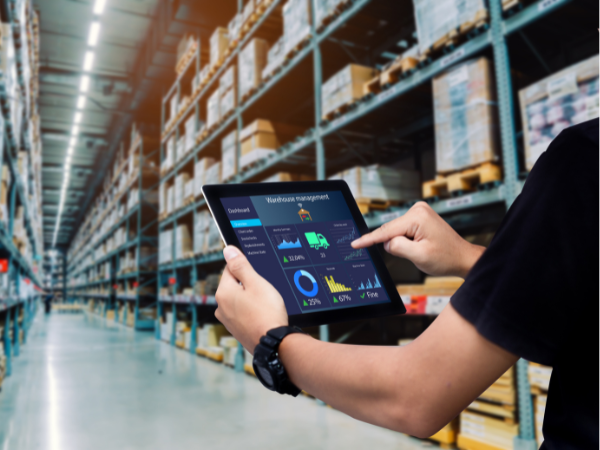
Top Concerns Organizations Have About Mobile Barcoding Security
READ NOW »New Trends in Cloud ERP Security
Looking ahead and the fast-moving field of cloud ERP security, several trends stand out. These trends bring new and exciting technological developments—but also new risks.
- Advanced Threat Detection and Response incorporating AI and machine learning for real-time threat detection and rapid response to potential security incidents.
- Zero Trust Security Models with strict access controls where trust is never assumed, even within the network, and every request is verified.
- Increased Focus on Endpoint Security with emphasis on securing all endpoints, as remote work becomes more prevalent, leading to a greater emphasis on endpoint protection strategies.
- Cloud Access Security Brokers (CASBs): Employing CASBs provides a layer of security policy enforcement and visibility between cloud service users and cloud applications.
- User Behavior Analytics (UBA): Utilizing UBA to detect anomalies in user behavior as a way to spot a security breach or insider threat.
- Integrating Security into DevOps (DevSecOps) to ensure secure software development life cycles.
- Exploring Security Benefits of Blockchain for its potential to increase transparency, especially in transaction processing and data integrity.
- Leveraging Advanced AI to more effectively detect, prevent, and neutralize security threats.
These new developments aren’t without their challenges, however. Experts anticipate new cybersecurity threats to continue to make themselves known. More sophisticated cyber threats will necessitate continuous development of even more sophisticated security measures.
What does the future look like for cloud ERP security?
As digital transformation continues to move to the cloud, the security of cloud-based ERP systems remains a paramount concern. Maintaining security requires deploying the right technology and fostering a culture of security awareness and vigilance among all users.
As technology evolves and cyber threats become more sophisticated, businesses must remain proactive, continuously updating and refining their security strategies. The future of cloud ERP security is dynamic, demanding constant attention and adaptation. By staying informed, collaborating, and being ready to embrace emerging technologies and trends, businesses can ensure that their cloud ERP systems are not only efficient and scalable but also secure and trustworthy, safeguarding their most valuable asset—data.




